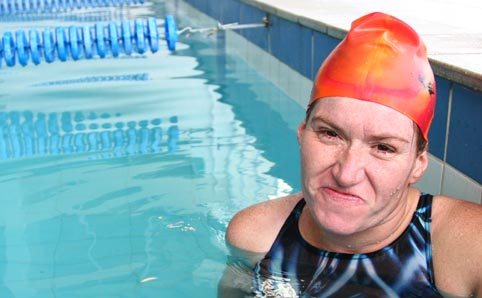|

|
|
Sarah Shannon
Photo: Lize-Marie Smit
|
An intimate send-off party was recently held in Sarah Shannon’s honour by her support group. She is a student from our university and she is heading to present South Africa at the 2011 Pan Pacific Para-swimming Championships in Alberta, Canada from 10-14 August. Here she will be competing in the 50 m and 100 m free-style, and the 50 m and 100 m backstroke, respectively.
Sarah, a silver-medal winner at the Para-Olympic World Championships in Brazil 2009, has set high goals for herself. She has a Bachelors degree in Psychology, has completed her Postgraduate Certificate in Education modules, and she is a motivational speaker to boot. She is also scheduled to start her PGCE practical teaching at the Tswellang Special School in Bloemfontein at the beginning of September 2011. “I love helping people and making a difference, and I would like to work with children with special needs,” Sarah says.
Ms Arina Otto, Manager at our Sports Medicine Clinic says: “We believe in you, Sarah, but mostly we support you all the way.” Sarah is also supported by the South African Sports Confederation and Olympic Committee (SASCOC) and is currently on their OPEX (Operation Excellence) Programme. OPEX sponsored her by ensuring she gets all the medical and scientific support as an athlete.
Sarah swims two hours a day and exercises for an hour on a daily basis.
“We are hoping she does well in Canada so she can be selected for the 2012 Para-Olympic Games,” says Ms Tanya Martin, Assistant Coach: SuperSport Seals Swimming Club.